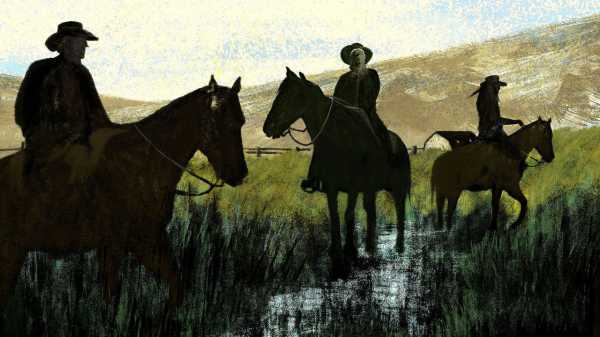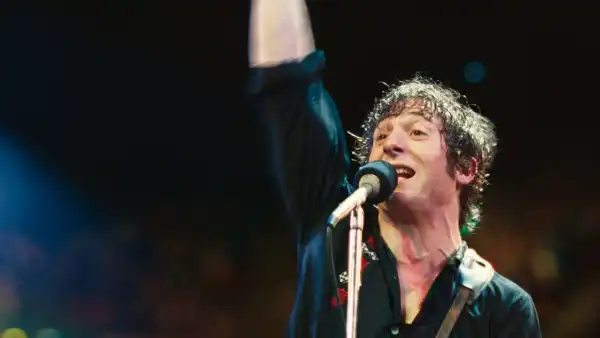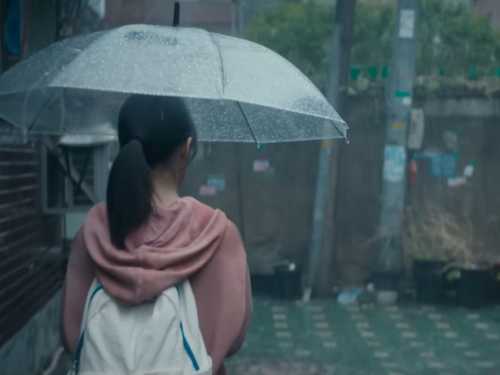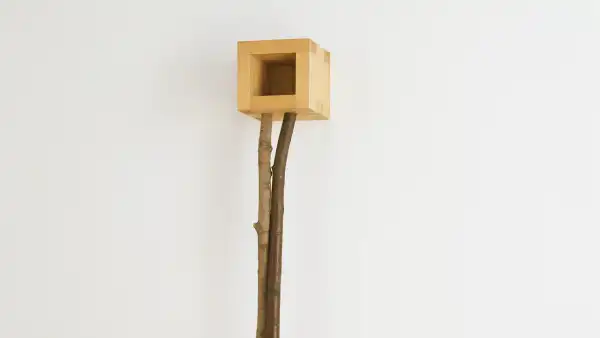
The fifth season of “Yellowstone” opens on the sullen face of its patriarch, John Dutton III (Kevin Costner), a sixth-generation rancher who has just been voted governor of Montana. The election was a gambit, but its long-term payoffs remain nebulous for now. Dutton suspects that the office might come at the cost of the very way of living that he entered politics to protect—tending cattle in peace on the Yellowstone ranch, the state’s largest such outfit, which for four previous seasons has been besieged by one land-grubbing party or another. Dutton and his three adult children are concerned, above all, with keeping things as they have been. In a concession speech, his opponent, a transplant to the state, gushes over the land and good people of his adopted home, and pointedly expresses his hope that the Governor-elect will “represent all of Montana,” even the latecomers. Watching from HQ, the Governor-elect’s daughter sneers from behind her champagne flute, “You can go back to New York and take those fucking babies with you.”
Such is the fundamental posture of “Yellowstone”: funereal even in triumph, vicious in its wagon-circling, and haughty in its contempt for outsiders, whether they hail from the Big Apple or from, say, Billings. The series’ homespun orthodoxy, and its main character’s allergy to whatever falls under the sign of “progress,” has been singled out by some as the source of its success. Some twelve million viewers reportedly watched the première of Season 5, last November, making “Yellowstone” the biggest draw in prime-time cable after the N.F.L. According to the C.E.O. of Samba TV, a Nielsen rival, the show’s viewership was “significantly over-indexed” in flyover towns such as St. Louis and Cleveland and “not surprisingly” underperformed on the East and West Coasts. Such demographic evidence, combined with the show’s basic key words—horses, guns, Kevin Costner in denim—has been enough to solidify its distinction as programming that caters to the heartland. The conservative columnist Ross Douthat has called “Yellowstone” “the most red-state show on television.”
Some observers have tried to complicate this notion. Vulture’s Kathryn VanArendonk, one of the first critics I saw taking the series seriously, called its politics “slippery, changeable, and equivocating,” given its knowing inspection, if not quite a critique, of the Dutton psyche. Tressie McMillan Cottom wrote last year, in the Times, that it is “too easy” to label Yellowstone conservative, pointing out its fluency in the reigning idioms of liberal culture, from multiculturalism to designer footwear, even as it derides them. Meanwhile, Taylor Sheridan, who created “Yellowstone” with John Linson, has said, of its reputation as a “Republican” show, “I just sit back laughing.”
I am agnostic on the issue, because partisan politics, in my mind, can’t adequately explain the series’ mass appeal. Even with its fantasy of self-reliance, “Yellowstone” is, in truth, no more or less conservative in its ideas about race, gender, and class than any other family drama beamed into millions of living rooms. What distinguishes the show—what makes it good, or at least enticing—lies instead in the workings of genre. In “Yellowstone,” Sheridan has corralled the ranging tropes of the Western into the chambers of domestic melodrama.
This alloyed formula might help explain why the series has declined in quality as Sheridan has stretched the Duttons’ story to fill five seasons of “Yellowstone” and two prequels—“1883” and “1923.” The further the show expands its horizons, aiming for the status of Western epic, the less committed it seems to its melodramatic core. Put another way, “Yellowstone” works best as a rodeo, which, as the show itself tells us, is not real cowboying but a showy approximation, a fête for a dying art. And yet flaws, too, are part of a soap opera’s contract with its viewer—the understanding that an onscreen product can go bad for a minute and then snap back into its sweet spot.
One character calls the Yellowstone a “ranch the size of Rhode Island,” and I’m not sure that’s hyperbole. There is nothing modest about the Duttons’ outfit; even the word “ranch” rings like comic understatement. Although the everyday work of wrangling is done on horseback, surveilling the Yellowstone requires a veritable fleet of company-branded A.T.V.s and Ram pickups, plus a helicopter on standby. And yet, to Dutton’s mind, the breadth of his property is proportional to his vast intimacy with its features; the slightest disturbance of pond silt is tantamount to the desecration of the family grave. “Every Dutton who died is buried three hundred yards from my back porch,” he says. “When a tree grows on my ranch, I know exactly what fed it.”
Strife on the ranch comes with the maintenance of its borders. The ranch is a stronghold; more than once its defense is likened to warfare. Barbed wire, it seems, is always downed somewhere on the perimeter. In the series première, a herd of cattle have wandered beyond the property line, and an ensuing turf battle leaves at least two men—including Dutton’s oldest son—dead. Sometimes, the threats arrive by air, as when bales of lethal cattle chow are dropped into the fields. At one point, Dutton’s only grandchild is nabbed from underneath his nose. The Duttons return such favors in kind. Killings on the ranch happen with enough regularity that its staff has established its own dumping ground for the corpses that accumulate as a cost of doing business. But Dutton can be merciful, too. A pair of trespassing bikers, persuaded at gunpoint to dig their own graves, are permitted to go back to California on the promise that they’ll never return.
You can see why the Yellowstone is in the habit of recruiting ex-cons for its cowboys. Most of the wranglers we meet come saddled with the sorts of pasts that make life in Dutton’s employ seem like an upgrade, even if it means wearing a literal brand above their hearts, the same “Y” worn by the ranch’s cattle. In the spirit of the mythic West, which has always played at the border between legal and extralegal action, Dutton has muscle on one hip and the law on the other. When we first meet him, he’s serving as the livestock commissioner for the State of Montana, putting at his disposal a fleet of “cow police,” one of whom also toils on the ranch. A flashback shows Dutton sending his starry-eyed middle son, Jamie (Wes Bentley), into enemy territory—Harvard Law—for the good of the family business: “You want to be me someday? Then become something that can help me protect this place,” Dutton says. He may not think of himself as much of a politician, but he shares with them a habit of borrowing against individuals’ futures for the sake of his own legacy.
Episodic skirmishes—trespassers, fistfights—are mere symptoms of the bigger, more existential bad encroaching upon the Yellowstone: the spectre of real-estate development. The first season introduces a developer named Dan Jenkins (Danny Huston), whose California dream is a housing project that would leave Dutton land abutted by second homes and putting greens. For the Duttons, the feared outcome looks less like the Sodom and Gomorrah that the show figures for the West and East Coasts than like Breckenridge, or Park City—once hallowed industry towns turned flush by tourism. Already, the nearest town, Bozeman, has seen the bane of pour-over coffee.
Insinuating himself into the white folks’ drama is Chief Thomas Rainwater (Gil Birmingham), the tribal chairman of Broken Rock, a nearby rez, and the proprietor of its casinos. Birmingham has become recognizable for playing Native characters, including in other projects written by Sheridan, such as “Wind River” and “Hell or High Water.” In the latter, as a Texas Ranger on the hunt for a pair of bank robbers, he wryly reflects on the ironic vicissitudes of modern-day land grabs: “A hundred and fifty years ago, all this was my ancestors’ land. . . . Till the grandparents of these folks took it. And now it’s been taken from them.” On “Yellowstone,” Birmingham’s character is steelier. Rather than watch dustups between old and new settlers, Rainwater enters the fray, hoping that so much volatility can be exploited to his people’s gain. His goal looks nobler: neither possession nor preservation but reclamation, reparations. But Rainwater, too, is an outsider of sorts. He was not aware of his heritage until he turned eighteen. He was educated at Harvard and cut his teeth at Merrill Lynch. He dresses in Gucci, and his polish mitigates our sympathies.
“Yellowstone” has been called a neo-Western, but I am skeptical about applying that prefix. Westerns have always been records of their present moments, even as their heroes gallivant against landscapes with an outsized hold on history. The genre is wistful by definition, a referendum on the past suited to contemporary beliefs—and “Yellowstone” fits that tradition without seeking to upend it. The show’s modern setting has changed the face but not the nature of the familiar components: souped-up cowboys in defense of a claim; enemies both armed and bureaucratic, including B.L.M. (that is, the Bureau of Land Management). There is still an Indian threat. Where “Yellowstone” departs from the basic Western has more to do with its medium—television, or, further yet, streaming—than with its modern setting. The critic Aaron Bady has written that Westerns on film are “all about change, big endings and grand historical transitions,” whereas on television they have the time to linger in “the gap between one event and the next.” In other words, television has room to delay, to meditate, to obsess, and Sheridan, given wide latitude to iterate on the Duttons’ world, can prolong his tale of the West as long as he likes (or as long as the network keeps renewing).
Sheridan certainly “knows how a Western should look,” as the critic Noel Murray, an early recapper of the show, has remarked. Aerial shots and panoramic exteriors flatter the textured expanse of the valley. (Most of Seasons 1 through 3 were filmed in Utah; Season 4 moved production on location in Montana.) Even in closeup, characters rarely appear without the mountain range at their backs. The show is populated with fence railings and long, sleek trailers; the dark streak of cattle or a racing herd of wild horses; bodies prone on the ground or slung across a saddle; a calf turned over by bloat or broken spine laid onto a backboard; shallow graves and empty paddocks. Scenes linger on the glorious minutiae of cowboying, which in the utilitarian love language of wranglers often takes a verb form: “Stand up and tell me I can’t cowboy”; “You ready to go cowboy?”; “Cowboy the fuck up.” Like a medical drama, “Yellowstone” relishes the relevant argot: “heading,” “heeling,” “cutting,” “reining,” “point,” “swing,” “flank,” “drag.” The show’s main actors underwent cowboy camp, a two-week gantlet in roping, weapons training, and riding for eight hours a day. Sheridan, a part-time rancher himself, has a small role on the series as a hot-shot horseman named Travis, whose sole function seems to be doling out shit to newbies—and, by proxy, us viewers. In his first appearance, he slouches over the saddle, muscles flexing beneath a T-shirt that reads “Been doing Cowboy shit all day.”
The indulgent sights of land and rider are mated with high drama around the dining table, which at the Dutton residence—a manor dressed in cabin’s clothing—symbolizes all of the past and future yearnings of the nuclear unit. John’s wife has been dead for decades, the victim of a freak riding accident, but her place setting remains, as if reserved for her ghost. A flashback in the first season shows her, in her final moments, pinning the blame on her daughter, Beth, and making clear to Kayce (Luke Grimes), the youngest, that he is her favorite. Like geographical borders, familial inheritance can generate the very problems that they were designed to remedy: none of the Dutton children are well suited to assume custody of the ranch when their father is gone. Kayce, played with maximal hangdoggedness by Grimes, finds himself perpetually caught between his natal homestead and the family he’s made on the rez with Monica, his Native wife, and their young son. Jamie, the lawyer, is the resident whipping boy, the black sheep whose ambitions surpass his mettle. I assumed for a while that his character was closeted, both for the homophobic jeers that others send his way and for how loathed he seems by his family and by the forces of plot. And nobody hates on him like Beth, for reasons revealed in another one of the show’s frequent flashbacks. An investment banker based in Salt Lake City, Beth returns to the ranch in Season 1 to supply the family armory with financial acumen and devilish thinking. She is both the fiercest defender of the Yellowstone and its most disinterested party. “It doesn’t matter how many people sit at the table, honey,” her father tells her. “What matters is they have a place to sit.” Beth responds, “I’m not doing this for a table. I’m doing this for you. And, when you’re gone, I’ll sell the table first.”
“Yellowstone” has been half-seriously called “Yeehaw Succession,” owing to certain parallels with the HBO series, which also features several sons and a daughter navigating the dynastic uncertainty stoked by their aging daddy. But the shows’ styles and syntaxes are continents apart. Dialogue on “Yellowstone” is trite in the best of times, risible in its recourse to aphoristic wisdom: “Not a thing on this planet stays where it is”; “It’s hard to measure almost, because almost doesn’t matter”; “All the angels are gone, son. There’s only devils left”; “That’s the one good thing about problems, they’ll still be problems tomorrow.” Sheridan, who insists on writing every episode of the show by himself, spoke in a recent Atlantic profile, by Sridhar Pappu, about his preference for a sparse script, which he sees as an artistic choice. The self-seriousness of his writing only enhances its hokey rewards.
Various characters get their turn to pontificate, but the purest delivery comes from Dutton. With his role on “Yellowstone,” Costner has erected a persuasive image of the long-suffering American male, rugged and sensuous and a tad pitiable. The show’s costuming—directed by Ruth E. Carter in Season 1, and Johnetta Boone in the seasons since—accentuates the aging, affluent cowboy pose: Double R.L. jeans for lean dad legs and Oliver Peoples sunglasses to complement a textured face. Costner may be some right-wingers’ wet dream, but another section of the country has imprinted the image of him pressed against Whitney Houston in “The Bodyguard.” Whatever the success of that cinematic coupling—opinions vary, nostalgia clouds—the association serves this recent iteration of Costner well, stirring desire from beneath his stoic exterior.
Vital to the melodrama of “Yellowstone” is the uneven geometry between Dutton, Beth, and Rip (Cole Hauser), the ranch’s foreman. Flashbacks show Rip arriving at the Yellowstone as a youth, still stained with blood after bashing his abusive stepfather’s head in with a frying pan. As Dutton’s ranch hand, and then as his right hand, Rip has become as integral to the anatomy of the place as its land and its animals. He follows his boss without question, if also without glee, operating as though he were a vessel of a sacred order, born to serve. Such a role could easily come off as bloodless, but Hauser, whose baby face peeks behind a dark beard, imbues the character with the noble loneliness of a true cowpoke. Rip loves John, who gave him a life but will never think of him as a true son. He also loves Beth, who, if we’re picking favorites—one of the pleasures and prerogatives of watching soaps—is the best character on “Yellowstone.”
As played by the British actress Kelly Reilly, Beth doesn’t evade archetypes so much as greedily feed on them. She’s a feminine monster, or what some might call, less poetically, a straight-up cunt. Reilly, who assumed the high-necked posture of an officious gentlewoman in the 2005 adaptation of “Pride & Prejudice,” here bends her voice into something more like steely baby talk, the better to hurl her taunts. (“I gotta tell you something, and it comes from a place of love: you should really consider killing yourself,” she tells Jamie, and he comes close to heeding her advice.) But Beth’s finest show of character comes through not in words but swagger. She slinks around town braless in floral dresses and shit-kickers, then takes to the office in power suits, as at home around hedge funds as honky-tonks. The story of Beth and Rip follows the usual contours of frontier romances, from Helen Hunt Jackson’s “Ramona” to Laura Ingalls Wilder: a roughened laborer is sweet on the farmer’s daughter. Their origins are fleshed out in later seasons—cue more flashbacks—but the best stuff takes place in the present, where their collisions are at turns frenzied and tender. “I save all my crazy for you, baby,” Beth says in Rip’s arms. Their shared history binds them to each other but also binds their future to the open question of the ranch’s. Beth would sell off the place for parts if she could, but there is a catch to loving someone whose life is bound up in it: “When it’s gone, baby, I’m gone,” Rip says.
Beth and Rip are married now, the ceremony having taken place hastily in the Season 4 finale. Much else within recent seasons has been performed with haste, which is a strange complaint, I know, given the churn of implausible high jinks at the heart of the show’s identity. But something has changed. Recently “Yellowstone” has devoted a lot of its resources to Dutton’s political campaign. Now it must deal with the anticlimax of his election. Dutton has taken to governing about as one might expect—not at all—and his dereliction, though predictable, deprives viewers of the theatre of friction between his wants and his duties. It’s as though being governor hasn’t changed his life at all. Meanwhile, other characters have been tucked into narrative vestibules—Kayce and Monica are sidelined by grief, and besides offering a poignant glimpse into rez burial practices their story line is absent from the show’s center of gravity. Rainwater, the chairman, is on the verge of being unseated by a young, charismatic challenger whom we have barely got to lay eyes on. And Jamie is once again distracted by a crusade that the plot will never permit to flourish. Even the wranglers are doing a fair amount of twiddling.
The greatest share of conflict this season comes from Beth and a woman named Summer (Piper Perabo), her father’s paramour. Summer is a climate activist; after being sent to prison for protest activities, her sentence is commuted, by the new governor, to house arrest at the Yellowstone. She is the show’s hippie surrogate, stridently vegan yet ignorant of the land’s flora, her humanist politics masking an oblivious self-centeredness. Perabo is successfully grating in the role, but the lessons that Summer learns in the beauty of the Yellowstone have already been taught to viewers across four seasons prior. In one of the better moments of the season thus far, she and Beth beat the shit out of each other like cowboys, the bruises and blood bringing them to an understanding. It’s a reminder of the Western’s early purpose, as Bady has written, “as a space for playing out the fantasy of white reconciliation.” Melodrama, meanwhile, thrives on the irreconcilable, a sense of ritual cleaving. Perhaps the season will get there; its first half (the second will air this summer) left the cast primed for fracture, with the hands off to Texas to protect the herd from disease and two of the Dutton siblings talking fratricide.
John Dutton III was only the beginning—or the end, as it were. “1883” features Tim McGraw and Faith Hill, a married pair playing a married pair of Duttons, which could have yielded a fair amount of kitsch. But Sheridan plays his nineteenth-century frontier drama straight, framing the family’s earliest foray out West as an age-old confrontation between man and nature—“Death is everywhere on the prairie,” the narrator says. (Call it “Oregon Trail: The Limited Series.”) The Duttons’ fair daughter, Elsa (Isabel May), is lovestruck often enough, but the hysterics that “Yellowstone” delivers would seem petty beside preoccupations like deadly currents and starvation. The aphorisms remain: “Cool heads cross rivers. Hot heads drown.”
I prefer “1883” to the other prequel, “1923.” Currently airing its first season, “1923” follows a new set of Duttons, played by Harrison Ford and Helen Mirren—the least kitschy family members yet. The story is divided among a modernizing Montana, a Catholic Indian boarding school, and, bafflingly, an African safari, where Spencer Dutton (either Dutton III’s grandfather or great-uncle; who can keep track?) is stalking leopards. The views are still expensive-looking, but most of the soap is rinsed off. Watching Duttons past resist the progress of electric appliances somehow isn’t as pleasurable. There are better cowboy-and-Indian flicks out there. ♦
Sourse: newyorker.com






